The Acoustic Zen Adagio Loudspeaker
| The Acoustic Zen Adagio Loudspeaker |
| Stepping Into New Turf |
|
|
|
August 2006 |
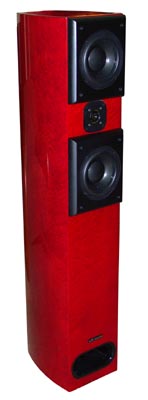 Mastering new territory
Mastering new territory
For many years, Acoustic Zen Technologies’ cable designer extraordinaire Robert Lee, has been manufacturing reference quality speaker cables, power cords and interconnects at prices that don’t hover above the stratosphere. His design goals have been to produce state-of-the-art products while keeping retail costs to a minimum. So when I learned that he was introducing a new loudspeaker at this past CES, I was intrigued to say the least.
The speaker is called the Adagio, a two-way transmission line loudspeaker featuring the classic D’Appolito driver configuration which sandwiches a 1 5/8” circular ribbon tweeter between two 6½” woofers. The woofers are mounted in separate baffles that sit out about an inch from the tweeter for time alignment. This configuration has been popular among speaker builders for some time and with good reason. It helps to create a more stable and rock solid image within the soundstage, which is exactly where the Adagio shines.
The Design
There are a number of ways to manufacture traditional box style speakers such as ported, bass reflex, infinite baffle and acoustic suspension, but transmission line designs can have significant benefits in the lower frequencies. Unlike a tweeter, a midrange/woofer driver generates sound from the front and the back of the driver. If the rear wave is left untreated it can contaminate the sound. Other than absorption, another solution is to create a way for the unwanted sound waves to escape the cabinet. In transmission line loudspeakers a tunnel is connected to the back of the driver to allow the rear wave to exit at the same time as the signal is coming out of the front of the loudspeaker. This passageway helps to reduce colorations and is a clever way to reinforce the front wave with the rear wave. As a result transmission lines have exceptional low frequency control and enhanced dynamics. Historically this type of loudspeaker enclosure has been more complex to design.
The Adagio’s are a fairly easy load to drive with a nominal impedance of 6ohms and a sensitivity rating of 89 dB. Frequency response is 30 Hz – 25 kHz +3 dB with a third order Linkwitz/ Riley crossover. The crossover point occurs at 3 kHz. Each speaker weighs 78 pounds, is 48 inches tall, 9 inches wide in front and 13 inches deep. Towards the back they taper off to a little less than five inches to help alleviate standing waves. The Adagios use a single set of binding posts, retail for $4,300.00, and come in two color options, figured maple or mappa burl. The figured maple is stained a gorgeous Ferrari Red but more on that later.
The Drivers
When Mr. Lee decided to design the Adagio’s his main concern was to select drivers that he felt would have the least amount of distortion. Instead of using the traditional dome tweeter he decided on a more linear driver, a 1 5/8 inch circular ribbon. It is a proprietary design that is hand assembled at the factory in San Diego, California. Each ribbon driver is shielded in the rear and protected in the front by a black aluminum faceplate. The ultra thin ribbon membrane is very light and has very good power handling capabilities. Ribbons are extremely fast because they have less moving mass than domes and the lighter weight helps to reduce excess ringing. Measurements can’t tell you what a speaker sounds like but on the test bed they revealed some impressive results. The ribbon tweeters have a completely flat phase and impedance curve.
To compliment the speed and low distortion characteristics of his tweeter, Mr. Lee decided to develop his own woofers. The custom designed woofer uses an underhung voice coil that is lower in distortion compared to the overhung voice coil found in the majority of loudspeaker designs.
An overhung driver has a long voice coil in a short magnetic gap and the under hung type uses a short voice coil in a long magnetic gap. Short coils dramatically reduce harmonic and transient distortion because they have complete control within the magnetic field.
In an underhung setup the voice coil operates inside the boundaries of the edges of the magnet. On the other hand, the voice coil in an overhung driver will not only vibrate within the gap between the magnets but also extend beyond the end of the magnets. When the voice coil functions inside and outside the strength of the magnetic field it produces more distortion. Although underhung drivers are more expensive to produce, because of larger magnets, they are lower in distortion then their aforementioned counterparts.
The cone portion of the driver is manufactured from fabric and coated on both sides with a ceramic composite. It is a very light driver connected to a rigid rubber surround. Mr. Lee has been making this type of driver since 1995 and has tweaked them over the years until he decided that last year they were ready for prime time. But just because a designer uses expensive parts doesn’t mean that it’s going to sound better than a speaker with lesser quality components. Crossover and cabinet design are just as important. But judging from the quality of the drivers he is certainly off to a great a start.
Package Complete
The nerve center behind any loudspeaker is its crossover; the Adagios use an 18db Linkwitz/Riley design. The resistors are non-inductive, the inductors air core, and the caps are special order. It’s mounted directly behind the ribbon tweeter and the internal wiring is of course, Acoustic Zen.
The cabinetry is furniture grade and the finish on both, the figured maple and mappa burl, is highlighted with a high gloss lacquer. Aesthetically they’ll make an excellent addition to any listening room and if you can place them in the vicinity of a window that receives the early morning sun, visually you’ll be in for a special treat. After admiring the craftsmanship for an extended amount of time, I plugged them in the system.
La Dolcé Vita
I used a number of sources for amplification, the NuForce Ref Nine’s and the Red Dragon Audio Leviathan’s. The Ref Nine’s have received an enthusiastic reception from the audiophile community but for review purposes I used the Red Dragons. Preamp duties were primarily handled by the Modwright SWL 9.0SE. There’s not a lot to be said about this excellent piece that hasn’t already been mentioned but a review is forthcoming. Source components were the Original CD-2008 Mk II and Esoteric SZ-1 CD players with the SZ-1 handling most of the work. All of the electronics plus the speakers were connected with Acoustic Zen cabling.
After I had a chance to put some hours on the Adagio’s, I’d say about two hundred or so, I began to takes notes. There were a number of positive attributes that I found immediately appealing about the Adagio’s. The first was how easy the Adagio’s seemed to disappear and how collectively each area of the musical spectrum seemed to sparkle. Soundstage height and width varied on the equipment used with the gradient curve starting at very good and ending at excellent. The Adagios produced a great three-dimensional image and from the listeners vantage point it was easy to hear into the stage. There was excellent air around the performers and what I liked most about the presentation was that each performer wasn’t overly etched in a constricted area of space but instead extended effortlessly beyond the front of the speakers.
Also to their credit the Adagio’s, from top to bottom, conveyed a uniformed musical presentation. One of the strengths of Mr. Lee’s cables is their open and airy portrayal of high frequency information, abundance of low level detail, and accurate retrieval of bass information. Listening to his loudspeakers it’s obvious that “the apple didn’t fall to far from the tree.”
Ribbon tweeters have always been noted for their exceptional clarity in the upper frequencies but sometimes they can dominate the presentation because of their overall speed and transparency. Partnered with Mr. Lee’s proprietary woofers, the ceramic coated low frequency drivers did not falter in keeping up with the tweeters and it was fairly easy to enjoy the music for hours on end. Listening to high frequency information was a real treat with the cymbals exhibiting plenty of pizzazz without a trace of hardness. But the most intriguing feature about the Adagios was the bass. This was one of the better bass performances that I had heard on any loudspeaker. It sounded as close to live music as I’ve heard.
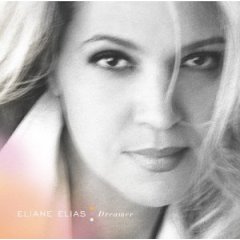 A recording that always appears in Craigy G’s CD library is Elaine Elias’,Dreamer [Bluebird/ Arista records]. This is one of my favorite recordings for its soulful and romantic renditions of some American ballads and great Bossa Nova tunes. This is the singer/pianists’ first “all English” CD and she is accompanied by a full orchestra. On track number two, “Baubles, Bangles and Beads,” the sound coming from the Adagio’s was very natural and genuine with Elias’ voice coming through with clear, concise articulation. An accomplished pianist with the ability to play with a formidable melodic style, the Adagio’s allowed her to convey her rich harmonic message from both the mike and the ivories. All of this was superbly executed while they also defined the true-to-life sound of brushes painting the skins of the drums and highlighting the tantalizing sounds of massed strings in the background.
A recording that always appears in Craigy G’s CD library is Elaine Elias’,Dreamer [Bluebird/ Arista records]. This is one of my favorite recordings for its soulful and romantic renditions of some American ballads and great Bossa Nova tunes. This is the singer/pianists’ first “all English” CD and she is accompanied by a full orchestra. On track number two, “Baubles, Bangles and Beads,” the sound coming from the Adagio’s was very natural and genuine with Elias’ voice coming through with clear, concise articulation. An accomplished pianist with the ability to play with a formidable melodic style, the Adagio’s allowed her to convey her rich harmonic message from both the mike and the ivories. All of this was superbly executed while they also defined the true-to-life sound of brushes painting the skins of the drums and highlighting the tantalizing sounds of massed strings in the background.
Moving over to what I like to call “real” soul music, Donnie McClurkin is an international Gospel artist that may not have performed with Sam and Dave, yet can still be considered a “Soul man.” On track number five, “Didn’t You Know” on his CD, Live in London and more… [Verity records], there was no doubt the effect that the Adagios had on his throaty vocals was amazing. Hearing this inspirational song brought out the compassion and the emotion that gave me goose bumps not just for the content but also because of the transducer that was used for the delivery. The Adagios unveiled the strength, and dynamic contrast and the musical nuances that make this track one of my favorites and is a motivational song that reassures me that I am not alone in this world. This disc is also recorded with an orchestra in the background and again the Adagios showed off their light airy nature and clear separation of individual instruments.
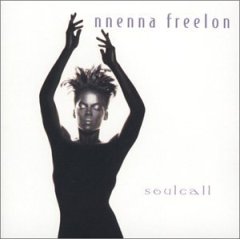 On Nnenna Freelon’s Soul Call[Concord Jazz], “Let It Be” was rendered as though the presentation in my listening room was an extension of the studio. The Adagios captured the smallest of details including the echo from the recording studio. Once again Mr. Lee’s speakers did an excellent job of letting the sound come right into the room with her voice demonstrating plenty of impact and personal presence. The Adagios allow you to hear her wonderful phrasing and shows off her many talents and skills. Bass is strong and well defined with a touch of bloom in contrast to what I’ve heard with other speaker manufactures. I’ve heard this track and the one before it, which also has a full bass line on numerous occasions and this is among the best presentation I’ve heard. The Adagios had excellent low end control which was reminiscent of how I hear the bass played in a live jazz band. This is one of the benefits in using transmission line designs because the bass is tight and natural sounding. Having listened to countless discs, time and time again, each track after each track, it was apparent that the Adagios’ strong suits are in the areas of balance and musicality.
On Nnenna Freelon’s Soul Call[Concord Jazz], “Let It Be” was rendered as though the presentation in my listening room was an extension of the studio. The Adagios captured the smallest of details including the echo from the recording studio. Once again Mr. Lee’s speakers did an excellent job of letting the sound come right into the room with her voice demonstrating plenty of impact and personal presence. The Adagios allow you to hear her wonderful phrasing and shows off her many talents and skills. Bass is strong and well defined with a touch of bloom in contrast to what I’ve heard with other speaker manufactures. I’ve heard this track and the one before it, which also has a full bass line on numerous occasions and this is among the best presentation I’ve heard. The Adagios had excellent low end control which was reminiscent of how I hear the bass played in a live jazz band. This is one of the benefits in using transmission line designs because the bass is tight and natural sounding. Having listened to countless discs, time and time again, each track after each track, it was apparent that the Adagios’ strong suits are in the areas of balance and musicality.
Conclusion
To say that I was impressed with the Adagios would be an understatement. I thoroughly enjoyed them and Mr. Lee has made a successful migration into the world of loudspeaker design. The Adagio’s will appeal to both the music lover and the most ardent home decorating aficionado who cherishes playback equipment that has a stunning visual effect. From the beginning, Mr. Lee’s intent was to design a loudspeaker that sounds great, looks great and most importantly, is priced so that most audiophiles can afford them. But then that shouldn’t come as a surprise because Mr. Lee’s cables are excellent value products that can go toe-to-toe with the best.
At $4,300.00 for the pair the Adagios represent a considerable bargain when you take into account the expense behind producing underhung drivers, a transmission line design and a high-end furniture finish that would be at home in any major showroom.
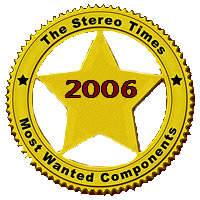 So after a few months of intimate exposure I can say with supreme confidence that Mr. Lee has exceeded his original expectations both aesthetically and musically and has another special product on his hands. The Adagios’ high resolution capabilities, neutral presentation, and exceptional imaging, will reward the most discriminating audiophile with true high-end performance that is usually only experienced, for save the most expensive designs. The Adagio’s sweet and balanced sound will appease many and should definitely be auditioned to hear how wonderfully music is reproduced. I was so amazed by the performance of the Adagios that I didn’t hesitate to nominate them with a Most Wanted Component Award. This is one fantastic loudspeaker that comes strongly recommended.
So after a few months of intimate exposure I can say with supreme confidence that Mr. Lee has exceeded his original expectations both aesthetically and musically and has another special product on his hands. The Adagios’ high resolution capabilities, neutral presentation, and exceptional imaging, will reward the most discriminating audiophile with true high-end performance that is usually only experienced, for save the most expensive designs. The Adagio’s sweet and balanced sound will appease many and should definitely be auditioned to hear how wonderfully music is reproduced. I was so amazed by the performance of the Adagios that I didn’t hesitate to nominate them with a Most Wanted Component Award. This is one fantastic loudspeaker that comes strongly recommended.
Craig “Craigy G” Fitzpatrick
_________________
Specifications:
Design: Two way transmission line
Drivers: Woofers: (2) 6 ½” doped ceramic fabric cone, 2 ½ under hung voice coil
(short voice coil/ long magnetic gap)
Tweeters: (1) 1 5/8” Round Ribbon
Nominal Impedance: 6 Ohm
Sensitivity: 89 db / 1w / 1 meter
Crossover: 3 kHz / 18 dB / Octave Linkwitz / Riley Crossovers
Frequency Response: 30Hz – 25 kHz + 3dB
Power Handling: 50 – 200W
Weight: 78 lbs each
Dimensions: 48” x 9” x 13” (Height x Width x Depth)
US Distributor, and Director of Worldwide
Product Distribution:
FLK Marketing and Distribution
Frank L. Kraus, President
Post Office Box 1247
Pine Hill, New Jersey 08021
Tel: 856-374-4757 Office
Email Address: FLKraus@Netzero.Net
Manufacturer:
Acoustic Zen
16736 West Bernardo Drive
San Diego, Ca. 92127
Tel: 858-487-1988
Website: http://www.acousticzen.com
Price $4300.00
![]()
Don’t forget to bookmark us! (CTRL-SHFT-D)
One thought on "The Acoustic Zen Adagio Loudspeaker"
Leave a Reply
Stereo Times Masthead
Publisher/Founder
Clement Perry
Editor
Dave Thomas
Senior Editors
Frank Alles, Mike Girardi, Russell Lichter, Terry London, Moreno Mitchell, Paul Szabady, Bill Wells, Mike Wright, and Stephen Yan,
Current Contributors
David Abramson, Tim Barrall, Dave Allison, Ron Cook, Lewis Dardick, John Hoffman, Dan Secula, Don Shaulis, Greg Simmons, Eric Teh, Greg Voth, Richard Willie, Ed Van Winkle, Rob Dockery, Richard Doron, and Daveed Turek
Site Management Clement Perry
Ad Designer: Martin Perry



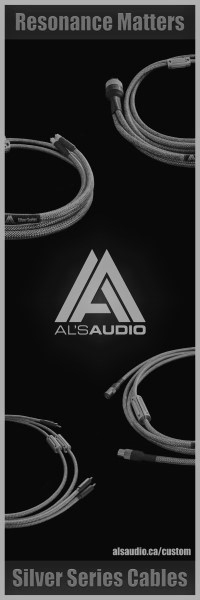
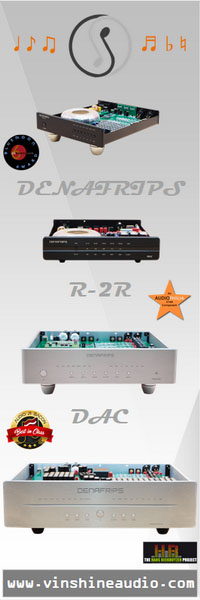
These are great, I have been to many audio shows and always come home to these with a happy heart.